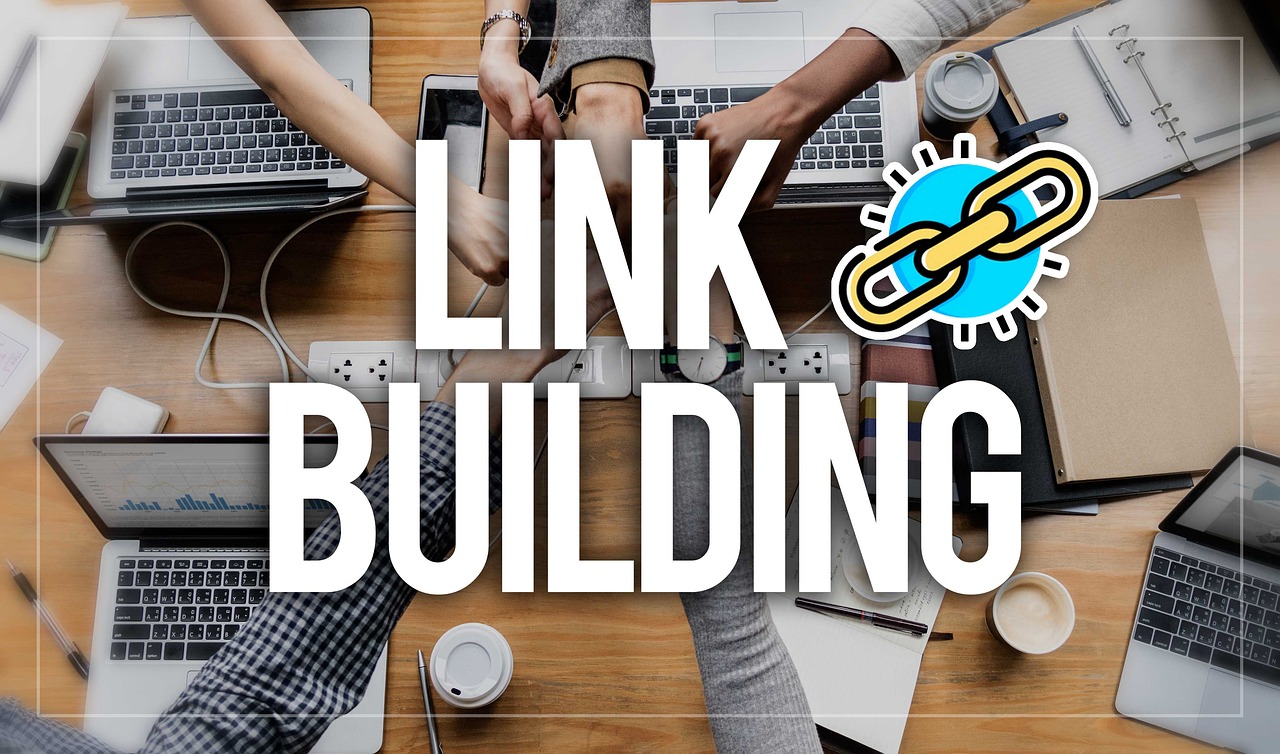In today’s digital age, social media is more than just a platform for sharing cat videos and vacation selfies. For lawyers, it presents an invaluable opportunity to connect with potential clients and build a robust professional reputation. Marketing plays a crucial role in shaping that presence, ensuring your content reaches the right audience at the right time. But navigating the world of Dallas Law Firm SEO and Marketing can be tricky. What strategies truly resonate with your audience? Which platforms should you focus on? Understanding the nuances of social media marketing can help you enhance your practice and attract new business. As legal professionals aim to showcase their expertise while engaging meaningfully, knowing what works and what doesn’t is essential.
The Importance of Social Media for Lawyers
Social media has revolutionized how lawyers connect with clients and peers. It provides a platform for legal professionals to establish their presence and showcase their expertise. With millions of users on various platforms, social media offers unparalleled access to potential clients. By engaging in conversations around relevant topics, lawyers can position themselves as thought leaders in their field.
Target Audience on Social Media

Understanding your target audience is crucial for effective social media marketing. Lawyers must identify who their potential clients are and what they seek. Start by analyzing demographics age, gender, location, and income levels. Each of these factors influences how people engage with content online. Next, consider the specific legal needs of your audience. Are they seeking family law advice? Maybe they’re interested in criminal defense or business contracts. Tailoring your message to meet these needs can create a strong connection. Engagement matters too. Pay attention to which posts resonate most with followers. Monitor comments and questions to gauge interests further.
Effective Platforms for Lawyers: Facebook, LinkedIn, and Twitter
Facebook is a powerful tool for lawyers to connect with potential clients. Its vast user base allows for targeted ads, enabling you to reach individuals based on their interests and demographics. Sharing informative posts or legal tips can position you as an expert in your field. LinkedIn, often seen as a professional platform, offers a chance to network with other professionals and businesses. It’s ideal for building relationships within the legal community. Regularly updating your profile and engaging in discussions enhances your credibility. Twitter provides real-time interaction opportunities. You can share quick updates or insights into current events affecting the law. Using relevant hashtags helps expand your reach beyond just followers.
The importance of Visual Content on Social Media

Visual content is a powerful tool for lawyers on social media. Images, videos, and infographics grab attention quickly. In the fast-paced digital landscape, visuals help convey complex legal concepts in an easily digestible format. Sharing video testimonials from satisfied clients can enhance credibility. Short clips explaining legal processes also demystify the law for potential clients. Visuals create connection and trust. Infographics are another effective way to present data or statistics relevant to your practice areas. They simplify information while showcasing your expertise.
Potential Ethical Concerns for Lawyers on Social Media
Navigating social media as a lawyer can be tricky. There are ethical boundaries that must not be crossed. Confidentiality is paramount. Sharing client stories or case details, even in vague terms, can lead to severe consequences. Always prioritize your client’s privacy. Misleading information is another concern. It’s vital to ensure that all posts accurately represent legal facts and do not create unrealistic expectations for potential clients. Engaging with the public presents additional risks. While responding to comments might seem friendly, it could unintentionally lead to establishing an attorney-client relationship without proper safeguards.
Social media marketing holds significant potential for lawyers looking to connect with clients and build their brand. By understanding the platforms where your audience spends time, you can tailor your approach effectively. Facebook allows for broad engagement, LinkedIn offers professional networking opportunities, and Twitter is perfect for real-time updates. Knowing your …





 At the heart of A/B testing is its ability to boost conversion rates. Marketers can pinpoint which elements drive more conversions by testing variations of a call-to-action (CTA), headline, or layout. Changing the color of a CTA button from green to orange might result in a higher click-through rate. Such tests enable businesses to make data-driven decisions, ensuring that every campaign element is optimized to convert visitors into customers. This iterative process helps refine the user experience and increases the likelihood of achieving desired outcomes, whether purchases, sign-ups, or downloads.
At the heart of A/B testing is its ability to boost conversion rates. Marketers can pinpoint which elements drive more conversions by testing variations of a call-to-action (CTA), headline, or layout. Changing the color of a CTA button from green to orange might result in a higher click-through rate. Such tests enable businesses to make data-driven decisions, ensuring that every campaign element is optimized to convert visitors into customers. This iterative process helps refine the user experience and increases the likelihood of achieving desired outcomes, whether purchases, sign-ups, or downloads. Beyond immediate performance improvements, A/B testing provides valuable insights into consumer behavior and preferences. Each test reveals data about how your audience interacts with different elements of your marketing strategy. This data can inform future campaigns and help refine your overall marketing strategy. For example, if testing different headline styles reveals a preference for concise, action-oriented headlines, you can apply this insight across other content pieces.
Beyond immediate performance improvements, A/B testing provides valuable insights into consumer behavior and preferences. Each test reveals data about how your audience interacts with different elements of your marketing strategy. This data can inform future campaigns and help refine your overall marketing strategy. For example, if testing different headline styles reveals a preference for concise, action-oriented headlines, you can apply this insight across other content pieces.




 Many customers often leave without completing the purchase. It happens more often than you think. But don’t worry, there’s a way to win these customers back through abandoned cart recovery
Many customers often leave without completing the purchase. It happens more often than you think. But don’t worry, there’s a way to win these customers back through abandoned cart recovery 
 Data-driven decision-making is like having a crystal ball that gives you insights into your customers’ minds and behaviors. By analyzing data from various sources, such as website analytics, social media metrics, or customer surveys, businesses can gain valuable insights that guide their marketing strategies. Data helps you understand who your target audience is and what they truly want. It means there is no more assumption or guesswork, only reliable, accurate data that you can tailor your messaging and offerings in a way that resonates with your audience.
Data-driven decision-making is like having a crystal ball that gives you insights into your customers’ minds and behaviors. By analyzing data from various sources, such as website analytics, social media metrics, or customer surveys, businesses can gain valuable insights that guide their marketing strategies. Data helps you understand who your target audience is and what they truly want. It means there is no more assumption or guesswork, only reliable, accurate data that you can tailor your messaging and offerings in a way that resonates with your audience. With the rise of digital channels, it’s no longer enough to focus on just one marketing channel. To maximize your digital business ROI, you need to embrace a multi-channel approach.
With the rise of digital channels, it’s no longer enough to focus on just one marketing channel. To maximize your digital business ROI, you need to embrace a multi-channel approach. 







 Podcasts can’t be overlooked for their mighty power to engage the audience while providing them with content they love to listen to while on the go. If you have published articles or blog posts that would make for interesting podcast episodes, this is a smart way to repurpose your old content.
Podcasts can’t be overlooked for their mighty power to engage the audience while providing them with content they love to listen to while on the go. If you have published articles or blog posts that would make for interesting podcast episodes, this is a smart way to repurpose your old content.
 One great way to repurpose your old content is by creating guest posts on topics that you have already mastered. By doing so, you can share your expertise with a new audience and drive more traffic back to your site. To get started, identify which topics you feel most confident writing about. Ensure the topic you pitch aligns with their website’s theme and audience. Once accepted, use your existing blog posts as inspiration but create something fresh and unique tailored specifically for the target site. Remember that crafting high-quality guest posts takes time, research, and dedication, so be willing to put in the effort needed for maximum results!
One great way to repurpose your old content is by creating guest posts on topics that you have already mastered. By doing so, you can share your expertise with a new audience and drive more traffic back to your site. To get started, identify which topics you feel most confident writing about. Ensure the topic you pitch aligns with their website’s theme and audience. Once accepted, use your existing blog posts as inspiration but create something fresh and unique tailored specifically for the target site. Remember that crafting high-quality guest posts takes time, research, and dedication, so be willing to put in the effort needed for maximum results!

 Link building is getting other websites to link back to your
Link building is getting other websites to link back to your 

 Local SEO is a crucial aspect of voice search optimization thanks to the effort of going multilingual. This strategy focuses on ranking higher in local search results by optimizing your website and business information for specific geographical locations.
Local SEO is a crucial aspect of voice search optimization thanks to the effort of going multilingual. This strategy focuses on ranking higher in local search results by optimizing your website and business information for specific geographical locations. In today’s digital world, mobile optimization has also dominated the success keys of any online business. So strike your page speed, and make it like the Flash. To do so, optimize images and reduce unnecessary code on your site to ensure fast loading times.
In today’s digital world, mobile optimization has also dominated the success keys of any online business. So strike your page speed, and make it like the Flash. To do so, optimize images and reduce unnecessary code on your site to ensure fast loading times.
 One of the primary risks associated with purchasing followers is the quality of those followers. Many times, what you’ll be getting are fake accounts created by bots or other automated programs, which can lead to low engagement and a decrease in your overall reach. It’s also important to consider that these fake accounts may not even stay around for long, as Instagram tends to delete them on a regular basis, meaning that you’ll be wasting money on followers that won’t last.
One of the primary risks associated with purchasing followers is the quality of those followers. Many times, what you’ll be getting are fake accounts created by bots or other automated programs, which can lead to low engagement and a decrease in your overall reach. It’s also important to consider that these fake accounts may not even stay around for long, as Instagram tends to delete them on a regular basis, meaning that you’ll be wasting money on followers that won’t last.


 No successful YouTuber was born without their persona and niche. To be successful, you need to create a unique channel and persona that stands out from the crowd. This should include topics, content style, and even your presentation. But how can you ensure that the niche you choose is successful? The answer lies in researching your interests, identifying a gap in the market, and then creating content that caters to that specific need. Not only will this help you build a loyal following, but it will also make it easier for potential customers to find and engage with your content.
No successful YouTuber was born without their persona and niche. To be successful, you need to create a unique channel and persona that stands out from the crowd. This should include topics, content style, and even your presentation. But how can you ensure that the niche you choose is successful? The answer lies in researching your interests, identifying a gap in the market, and then creating content that caters to that specific need. Not only will this help you build a loyal following, but it will also make it easier for potential customers to find and engage with your content. Once you’ve created some content that promotes your chosen program, it’s time to think about how to get viewers actually to follow through and purchase something. This is where integrating affiliate links come in. You can do this by including links in your videos, adding them to the description of each video, or even making a dedicated page on your website with affiliate programs you’re signed up for. This will make it easier and more enticing for viewers to look into products they might be interested in.
Once you’ve created some content that promotes your chosen program, it’s time to think about how to get viewers actually to follow through and purchase something. This is where integrating affiliate links come in. You can do this by including links in your videos, adding them to the description of each video, or even making a dedicated page on your website with affiliate programs you’re signed up for. This will make it easier and more enticing for viewers to look into products they might be interested in.




 Your target audience is one of the most important factors to consider when choosing a
Your target audience is one of the most important factors to consider when choosing a  Before you commit to a social media platform, ensure you have the resources to support it. Posting regularly on social media takes time and effort. You will need someone to create and curate content, as well as someone to manage your account(s). If you don’t have the workforce to support a social media presence, it’s better to focus your efforts elsewhere. When choosing a social media platform for your business, there are many factors to consider.
Before you commit to a social media platform, ensure you have the resources to support it. Posting regularly on social media takes time and effort. You will need someone to create and curate content, as well as someone to manage your account(s). If you don’t have the workforce to support a social media presence, it’s better to focus your efforts elsewhere. When choosing a social media platform for your business, there are many factors to consider.

 If you want to increase your
If you want to increase your 
 The first step in creating a social media presence is to establish your brand voice. This will be your tone and personality when communicating with your
The first step in creating a social media presence is to establish your brand voice. This will be your tone and personality when communicating with your  The second key element of a social media presence is authenticity. You must be authentic in your interactions to build trust with your audience. This means being genuine and transparent. It is essential to show your audience that there is a real person behind your brand. You can do this by sharing personal stories and experiences. You should also avoid using too much marketing speak. Instead, focus on creating content that is helpful and informative. When it comes to authenticity, it is also essential to be responsive.
The second key element of a social media presence is authenticity. You must be authentic in your interactions to build trust with your audience. This means being genuine and transparent. It is essential to show your audience that there is a real person behind your brand. You can do this by sharing personal stories and experiences. You should also avoid using too much marketing speak. Instead, focus on creating content that is helpful and informative. When it comes to authenticity, it is also essential to be responsive. And your content needs to be well written and properly formatted so that it can be easily found by your target audience. This is where SEO comes into play. SEO stands for search engine optimization. When you optimize your content for SEO, you are increasing its chances of appearing in search results. This means that more people will see your content and be able to find your brand. Several factors go into SEO, but some of the most important ones include keyword research, title tags, and meta descriptions.
And your content needs to be well written and properly formatted so that it can be easily found by your target audience. This is where SEO comes into play. SEO stands for search engine optimization. When you optimize your content for SEO, you are increasing its chances of appearing in search results. This means that more people will see your content and be able to find your brand. Several factors go into SEO, but some of the most important ones include keyword research, title tags, and meta descriptions.